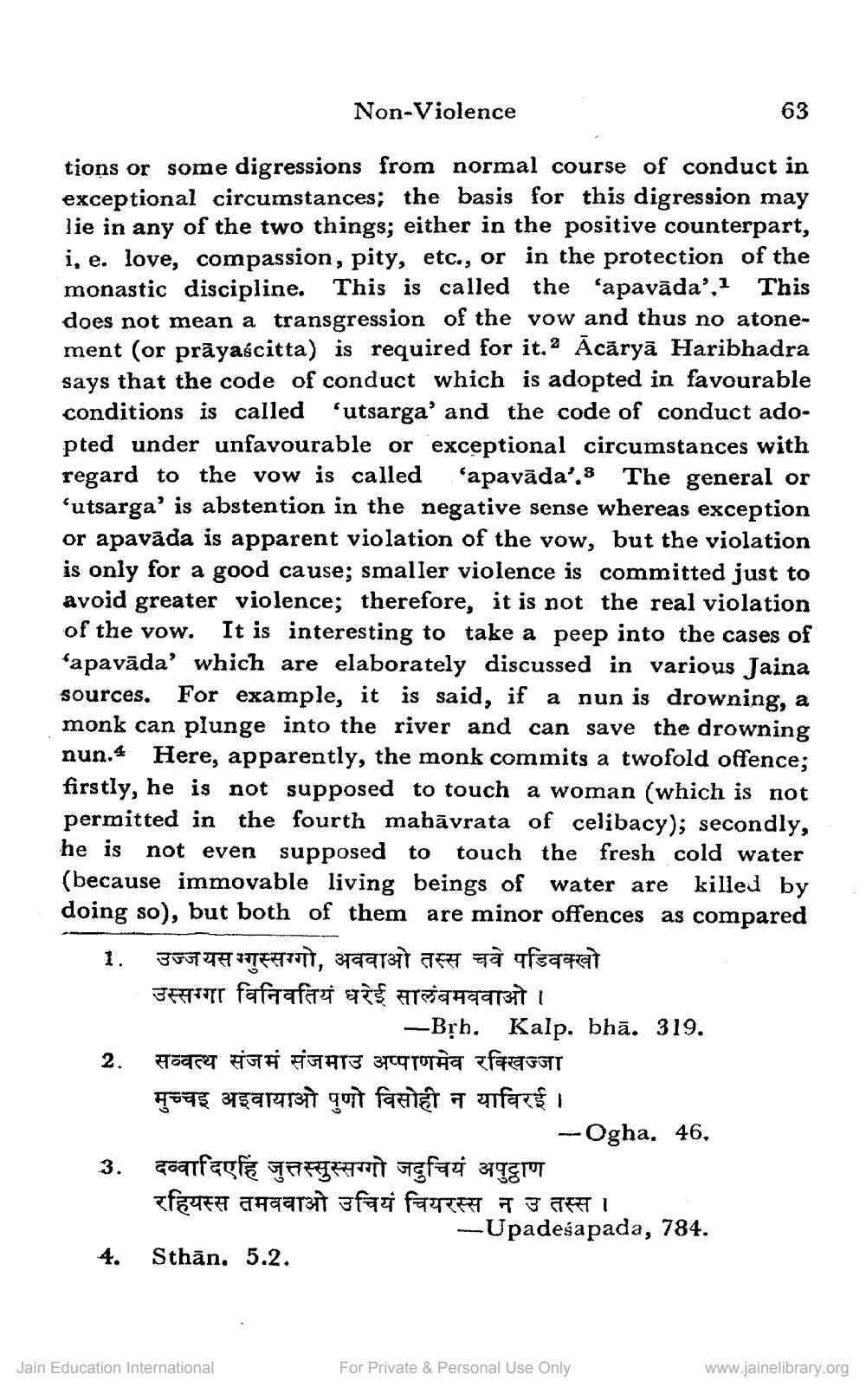________________
Non-Violence
63
tions or some digressions from normal course of conduct in exceptional circumstances; the basis for this digression may lie in any of the two things; either in the positive counterpart, i, e. love, compassion, pity, etc., or in the protection of the monastic discipline. This is called the 'apavāda'.1 This does not mean a transgression of the vow and thus no atonement (or prāyascitta) is required for it. 2 Ācāryā Haribhadra says that the code of conduct which is adopted in favourable conditions is called "utsarga' and the code of conduct adopted under unfavourable or exceptional circumstances with regard to the vow is called 'apavāda'.8 The general or ‘utsarga' is abstention in the negative sense whereas exception or apavāda is apparent violation of the vow, but the violation is only for a good cause; smaller violence is committed just to avoid greater violence; therefore, it is not the real violation of the vow. It is interesting to take a peep into the cases of 'apavāda' which are elaborately discussed in various Jaina sources. For example, it is said, if a nun is drowning, a monk can plunge into the river and can save the drowning nun.4 Here, apparently, the monk commits a twofold offence; firstly, he is not supposed to touch a woman (which is not permitted in the fourth mahāvrata of celibacy); secondly, he is not even supposed to touch the fresh cold water (because immovable living beings of water are killed by doing so), but both of them are minor offences as compared 1. 3557 TETETT, 379arat att ta tfeqqat उस्सग्गा विनिवतियं धरेई सालंबमववाओ।
-Bịh. Kalp. bhā. 319. 2. सव्वत्थ संजमं संजमाउ अप्पाणमेव रक्खिज्जा मुच्चइ अइवायाओ पुणो विसोही न याविरई।
-Ogha, 46, 3. दव्वादिएहिं जुत्तस्सुस्सग्गो जदुचियं अपुट्ठाण रहियस्स तमववाओ उचियं चियरस्स न उ तस्स ।
-Upadeśapada, 784. 4. Stoãn. 5.2.
Jain Education International
For Private & Personal Use Only
www.jainelibrary.org




